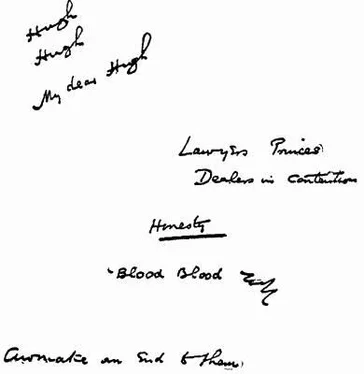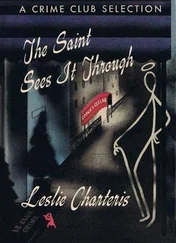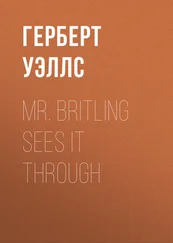Herbert Wells - Mr. Britling Sees It Through
Здесь есть возможность читать онлайн «Herbert Wells - Mr. Britling Sees It Through» весь текст электронной книги совершенно бесплатно (целиком полную версию без сокращений). В некоторых случаях можно слушать аудио, скачать через торрент в формате fb2 и присутствует краткое содержание. Жанр: Классическая проза, на английском языке. Описание произведения, (предисловие) а так же отзывы посетителей доступны на портале библиотеки ЛибКат.
- Название:Mr. Britling Sees It Through
- Автор:
- Жанр:
- Год:неизвестен
- ISBN:нет данных
- Рейтинг книги:4 / 5. Голосов: 1
-
Избранное:Добавить в избранное
- Отзывы:
-
Ваша оценка:
- 80
- 1
- 2
- 3
- 4
- 5
Mr. Britling Sees It Through: краткое содержание, описание и аннотация
Предлагаем к чтению аннотацию, описание, краткое содержание или предисловие (зависит от того, что написал сам автор книги «Mr. Britling Sees It Through»). Если вы не нашли необходимую информацию о книге — напишите в комментариях, мы постараемся отыскать её.
Mr. Britling Sees It Through — читать онлайн бесплатно полную книгу (весь текст) целиком
Ниже представлен текст книги, разбитый по страницам. Система сохранения места последней прочитанной страницы, позволяет с удобством читать онлайн бесплатно книгу «Mr. Britling Sees It Through», без необходимости каждый раз заново искать на чём Вы остановились. Поставьте закладку, и сможете в любой момент перейти на страницу, на которой закончили чтение.
Интервал:
Закладка:
"At the back of our minds," he went on bitterly, "I suppose we thought the French would do the heavy work on land—while we stood by at sea. So far as we thought at all. We're so temperate-minded; we're so full of qualifications and discretions.... And so leisurely.... Well, France is down. We've got to fight for France now over the ruins of Paris. Because you and I, Manning, didn't grasp the scale of it, because we indulged in generalisations when we ought to have been drilling and working. Because we've been doing 'business as usual' and all the rest of that sort of thing, while Western civilisation has been in its death agony. If this is to be another '71, on a larger scale and against not merely France but all Europe, if Prussianism is to walk rough-shod over civilisation, if France is to be crushed and Belgium murdered, then life is not worth having. Compared with such an issue as that no other issue, no other interest matters. Yet what are we doing to decide it—you and I? How can it end in anything but a German triumph if you and I, by the million, stand by...."
He paused despairfully and stared at the map.
"What ought we to be doing?" asked Mr. Manning.
"Every man ought to be in training," said Mr. Britling. "Every one ought to be participating.... In some way.... At any rate we ought not to be taking our ease at Matching's Easy any more...."
§ 18
"It interrupts everything," said Hugh suddenly. "These Prussians are the biggest nuisance the world has ever seen."
He considered. "It's like every one having to run out because the house catches fire. But of course we have to beat them. It has to be done. And every one has to take a share.
"Then we can get on with our work again."
Mr. Britling turned his eyes to his eldest son with a startled expression. He had been speaking—generally. For the moment he had forgotten Hugh.
CHAPTER THE SECOND
TAKING PART
§ 1
There were now two chief things in the mind of Mr. Britling. One was a large and valiant thing, a thing of heroic and processional quality, the idea of taking up one's share in the great conflict, of leaving the Dower House and its circle of habits and activities and going out—. From that point he wasn't quite sure where he was to go, nor exactly what he meant to do. His imagination inclined to the figure of a volunteer in an improvised uniform inflicting great damage upon a raiding invader from behind a hedge. The uniform, one presumes, would have been something in the vein of the costume in which he met Mr. Direck. With a "brassard." Or he thought of himself as working at a telephone or in an office engaged upon any useful quasi-administrative work that called for intelligence rather than training. Still, of course, with a "brassard." A month ago he would have had doubts about the meaning of "brassard"; now it seemed to be the very keyword for national organisation. He had started for London by the early train on Monday morning with the intention of immediate enrolment in any such service that offered; of getting, in fact, into his brassard at once. The morning papers he bought at the station dashed his conviction of the inevitable fall of Paris into hopeful doubts, but did not shake his resolution. The effect of rout and pursuit and retreat and retreat and retreat had disappeared from the news. The German right was being counter-attacked, and seemed in danger of getting pinched between Paris and Verdun with the British on its flank. This relieved his mind, but it did nothing to modify his new realisation of the tremendous gravity of the war. Even if the enemy were held and repulsed a little there was still work for every man in the task of forcing them back upon their own country. This war was an immense thing, it would touch everybody.... That meant that every man must give himself. That he had to give himself. He must let nothing stand between him and that clear understanding. It was utterly shameful now to hold back and not to do one's utmost for civilisation, for England, for all the ease and safety one had been given—against these drilled, commanded, obsessed millions.
Mr. Britling was a flame of exalted voluntaryism, of patriotic devotion, that day.
But behind all this bravery was the other thing, the second thing in the mind of Mr. Britling, a fear. He was prepared now to spread himself like some valiant turkey-gobbler, every feather at its utmost, against the aggressor. He was prepared to go out and flourish bayonets, march and dig to the limit of his power, shoot, die in a ditch if needful, rather than permit German militarism to dominate the world. He had no fear for himself. He was prepared to perish upon the battlefield or cut a valiant figure in the military hospital. But what he perceived very clearly and did his utmost not to perceive was this qualifying and discouraging fact, that the war monster was not nearly so disposed to meet him as he was to meet the war, and that its eyes were fixed on something beside and behind him, that it was already only too evidently stretching out a long and shadowy arm past him towards Teddy—and towards Hugh....
The young are the food of war....
Teddy wasn't Mr. Britling's business anyhow. Teddy must do as he thought proper. Mr. Britling would not even advise upon that. And as for Hugh—
Mr. Britling did his best to brazen it out.
"My eldest boy is barely seventeen," he said. "He's keen to go, and I'd be sorry if he wasn't. He'll get into some cadet corps of course—he's already done something of that kind at school. Or they'll take him into the Territorials. But before he's nineteen everything will be over, one way or another. I'm afraid, poor chap, he'll feel sold...."
And having thrust Hugh safely into the background of his mind as—juvenile, doing a juvenile share, no sort of man yet—Mr. Britling could give a free rein to his generous imaginations of a national uprising. From the idea of a universal participation in the struggle he passed by an easy transition to an anticipation of all Britain armed and gravely embattled. Across gulfs of obstinate reality. He himself was prepared to say, and accordingly he felt that the great mass of the British must be prepared to say to the government: "Here we are at your disposal. This is not a diplomatists' war nor a War Office war; this is a war of the whole people. We are all willing and ready to lay aside our usual occupations and offer our property and ourselves. Whim and individual action are for peace times. Take us and use us as you think fit. Take all we possess." When he thought of the government in this way, he forgot the governing class he knew. The slack-trousered Raeburn, the prim, attentive Philbert, Lady Frensham at the top of her voice, stern, preposterous Carson, boozy Bandershoot and artful Taper, wily Asquith, the eloquent yet unsubstantial George, and the immobile Grey, vanished out of his mind; all those representative exponents of the way things are done in Great Britain faded in the glow of his imaginative effort; he forgot the dreary debates, the floundering newspapers, the "bluffs," the intrigues, the sly bargains of the week-end party, the "schoolboy honour" of grown men, the universal weak dishonesty in thinking; he thought simply of a simplified and ideal government that governed. He thought vaguely of something behind and beyond them, England, the ruling genius of the land; something with a dignified assurance and a stable will. He imagined this shadowy ruler miraculously provided with schemes and statistics against this supreme occasion which had for so many years been the most conspicuous probability before the country. His mind leaping forwards to the conception of a great nation reluctantly turning its vast resources to the prosecution of a righteous defensive war, filled in the obvious corollaries of plan and calculation. He thought that somewhere "up there" there must be people who could count and who had counted everything that we might need for such a struggle, and organisers who had schemed and estimated down to practicable and manageable details....
Читать дальшеИнтервал:
Закладка:
Похожие книги на «Mr. Britling Sees It Through»
Представляем Вашему вниманию похожие книги на «Mr. Britling Sees It Through» списком для выбора. Мы отобрали схожую по названию и смыслу литературу в надежде предоставить читателям больше вариантов отыскать новые, интересные, ещё непрочитанные произведения.
Обсуждение, отзывы о книге «Mr. Britling Sees It Through» и просто собственные мнения читателей. Оставьте ваши комментарии, напишите, что Вы думаете о произведении, его смысле или главных героях. Укажите что конкретно понравилось, а что нет, и почему Вы так считаете.






